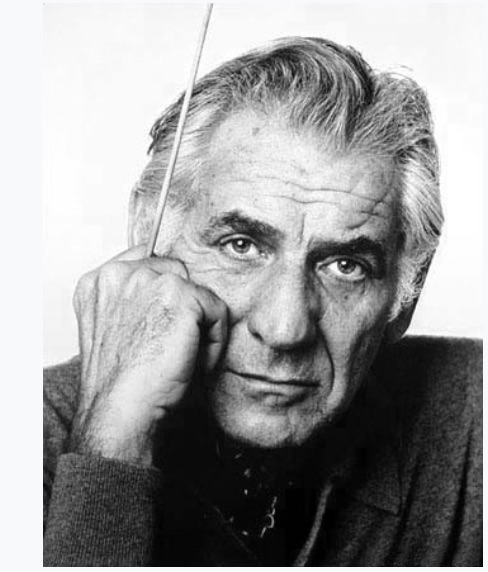
Leonard Bernstein was born on August 25, 1918, in Lawrence, Massachusetts to Jewish parents, Jennie (née Resnick) and Samuel Joseph Bernstein, who emigrated to the United States from Rivne in present day Ukraine. Leonard grew up in a musically inclined family and was exposed to various styles of music from an early age. However, he didn’t have access to a musical instrument until he was 10 years old, when his Aunt Clara donated her upright piano to the Bernstein residence. Leonard embraced this magical instrument as a life-long companion, teaching himself to read music and to play the piano.
On graduating from the prestigious Boston Latin School in 1935, Leonard enrolled at Harvard University, where he studied music, conducting, and orchestration. He was mentored by notable composers and musicologists, including Walter Piston and Aaron Copland and graduated cum laude in 1939 with a Bachelor of Arts degree. Bernstein performed the premiere of his first published work, Sonata for Clarinet and Piano on April 21, 1942 at the Institute of Modern Art in Boston. However, his breakthrough came in 1943 when he was appointed as a last-minute replacement for New York Philharmonic conductor Bruno Walter who had been sidelined with the flu. Bernstein’s performance was widely acclaimed and this launched his career as a conductor.
In the years that followed, Bernstein gained further fame as the conductor of the New York Philharmonic and other major orchestras around the world. His charismatic conducting style and ability to connect with audiences made him a beloved figure. As a composer, Bernstein is best known for “West Side Story,” a modern retelling of Shakespeare’s “Romeo and Juliet” set in the 1950s slums of New York City’s Upper West Side. The musical’s score, combining classical and popular elements, became a classic. The original Broadway production was premiered at the Winter Garden Theatre on September 26, 1957. Apart from “West Side Story,” Bernstein’s other notable compositions include “Candide,” “On the Town,” and “Chichester Psalms.” In fact, he composed a wide range of music, including symphonies, operas, ballets, choral works, and chamber music.
On April 6, 1962, Bernstein was to conduct a performance of the Brahms Piano Concerto No. 1, featuring the eccentric Canadian pianist Glenn Gould. Bernstein appeared on stage before the performance to issue a disclaimer indicating that he didn’t agree with the idiosyncratic interpretation that Gould would present and that the audience might consider it to be a worthy exploration.. In posing the question, “In a concerto, who is the boss: the soloist or the conductor?” Bernstein launched a controversy that embroiled the media in a longstanding debate. You can view Bernstein’s comments and hear Gould’s performance at: https://www.youtube.com/watch?v=zuxPKikM0NI
Throughout his life, Bernstein had been a heavy smoker, and by the time he reached his mid-50’s, he was suffering from emphysema. On October 9, 1990, he announced his retirement from conducting, and died of a heart attack five days later at the age of 72. As Leonard Bernstein’s funeral procession traveled through the streets of New York, construction workers doffed their hats in acknowledgement of his contribution to the city and the world.
In addition to his talents as a composer and conductor, Bernstein was also a passionate music educator. He gave numerous lectures, wrote books on music, and conducted educational television programs, most notably the “Young People’s Concerts” series. His contributions to both classical and popular music made him a unique and influential figure in 20th-century music. In bridging the gap between traditional classical music and contemporary styles, he made classical music more accessible to wider audiences.
